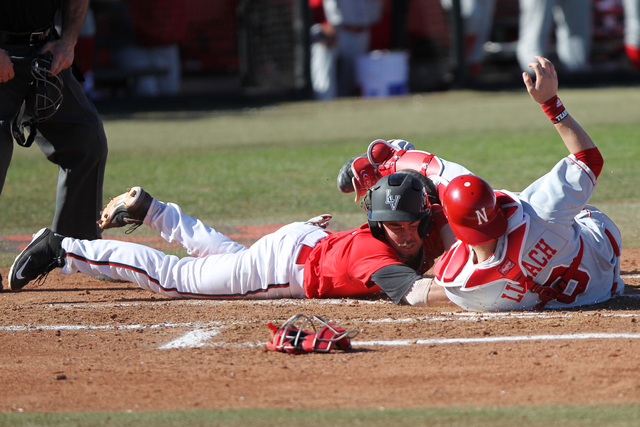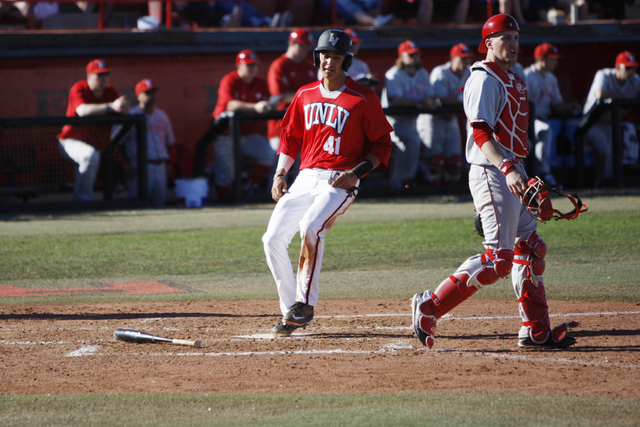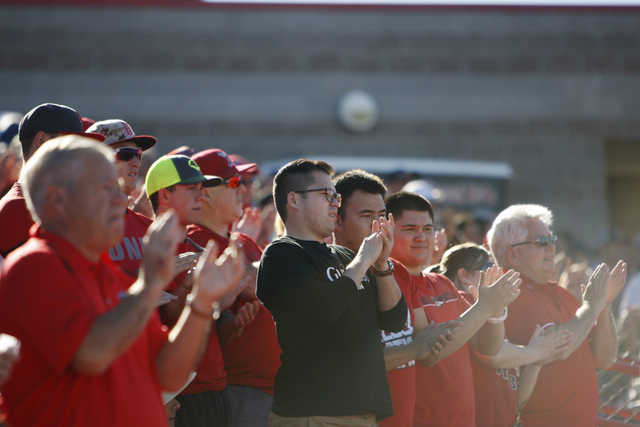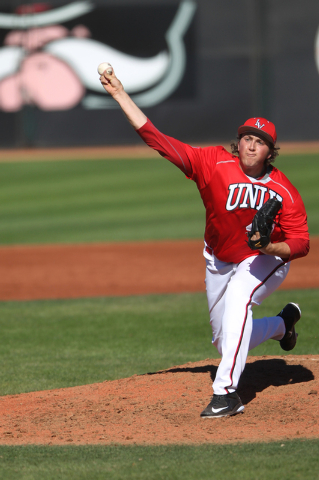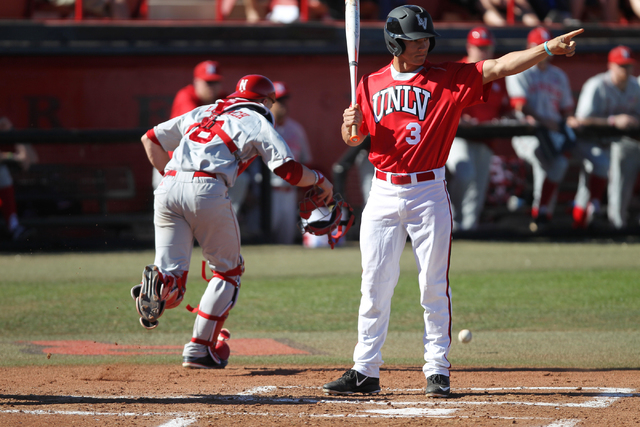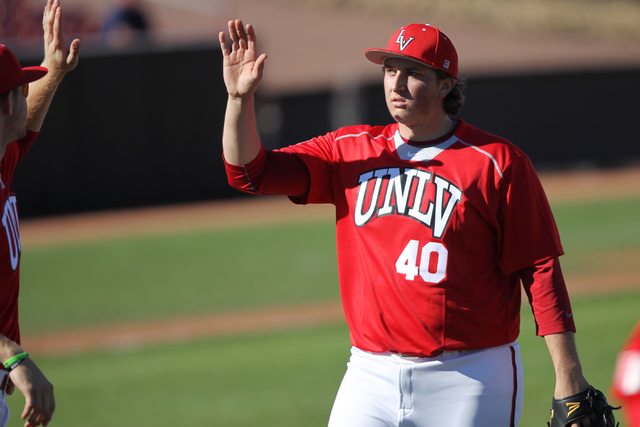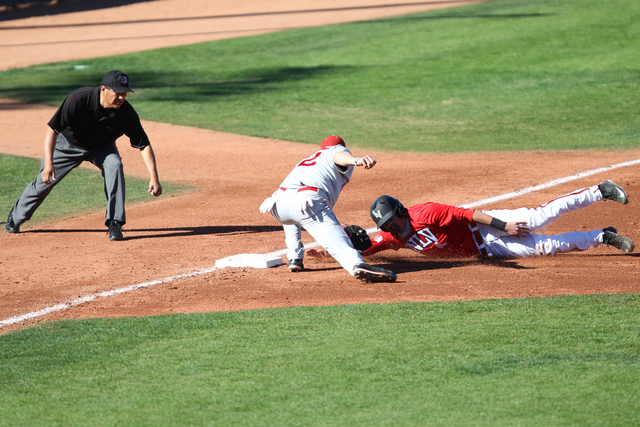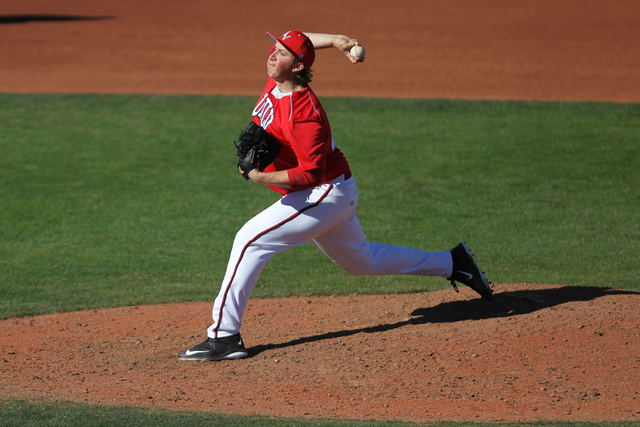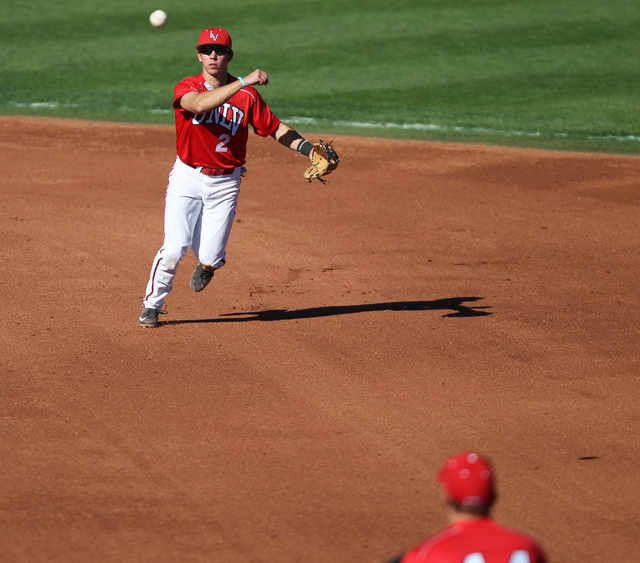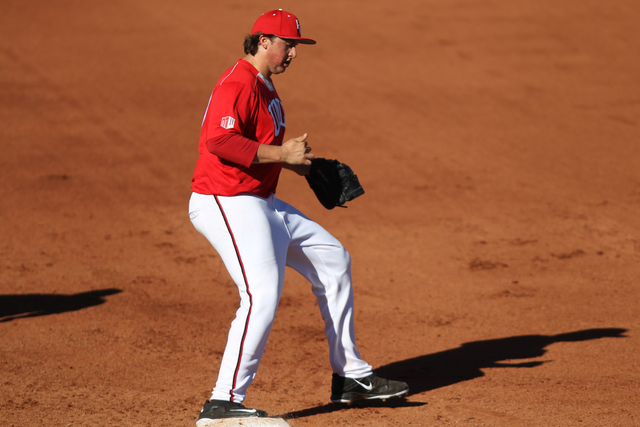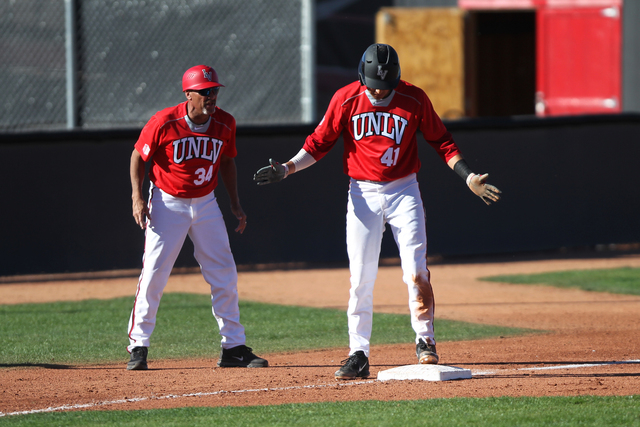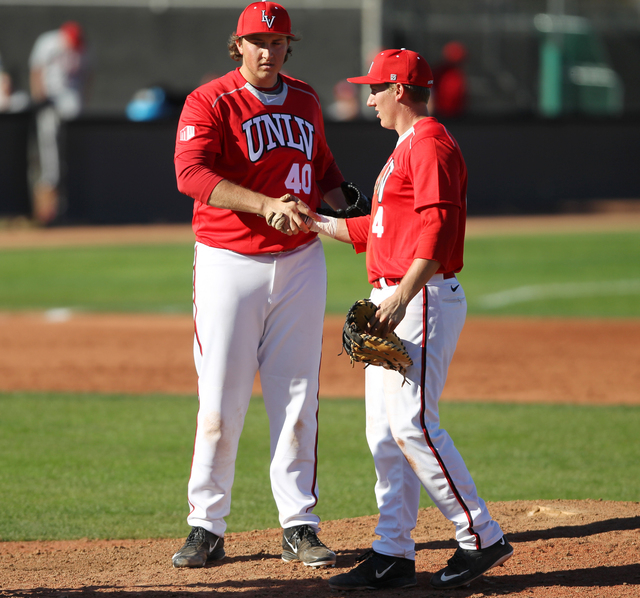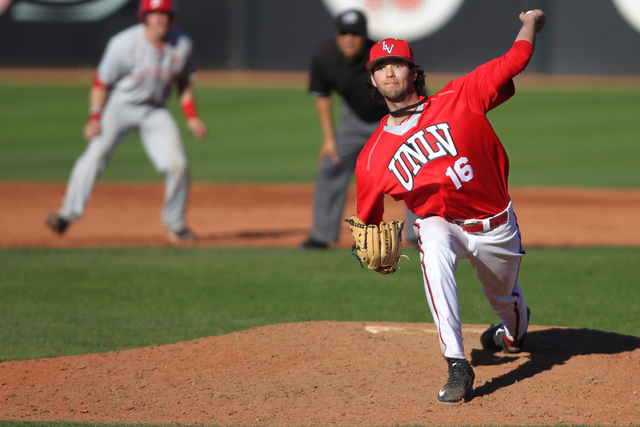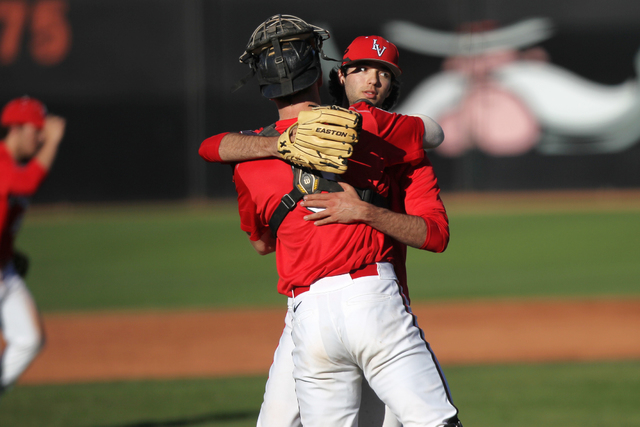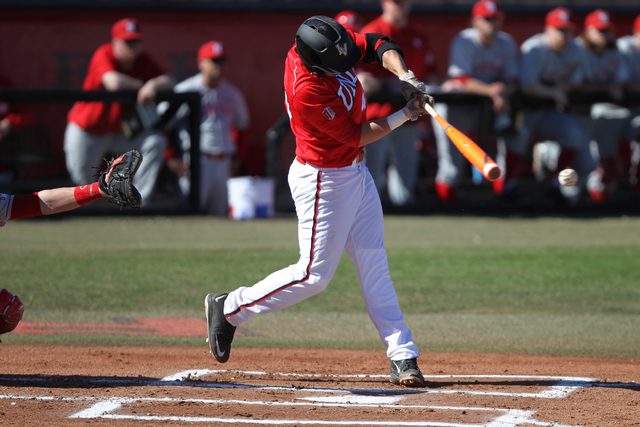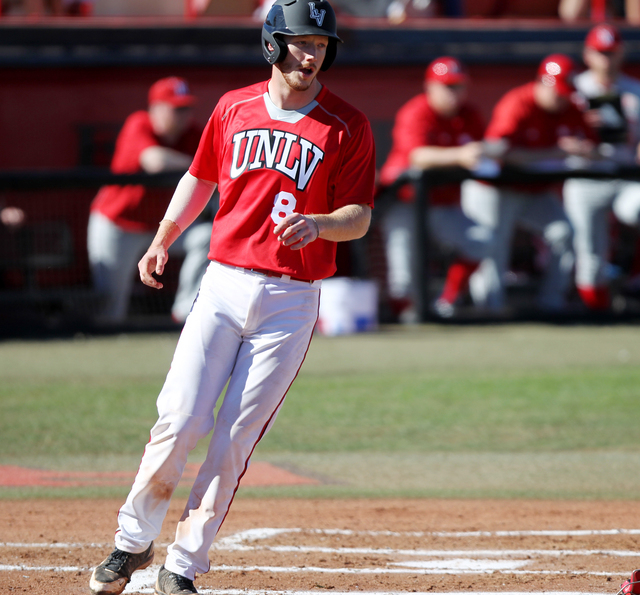Myers’ strong debut helps UNLV beat Nebraska, win series
UNLV didn’t have any real answers when No. 1 starter Erick Fedde went down with an elbow injury late last baseball season, preventing the Rebels from going as deep in the postseason as they had hoped.
They went into this season saying increased depth should ease the burden if more such injuries occur, and that theory was tested immediately Friday when Zak Qualls hurt his left arm five pitches into the season.
That theory survived its first test, and a strong pitching performance Sunday not only gave the Rebels a 3-0 victory over No. 23 Nebraska, but also the season-opening series at two games to one.
For a Rebels team that again has high hopes of playing deep into the postseason — and not going 1-2 in a regional like last season — the performances on the mound against the Cornhuskers (1-2) should affirm they have the pitching to be a viable threat.
The shutout was UNLV’s first at home since blanking Central Michigan on Feb. 14 of last year and the first of a ranked opponent since the first Mountain West baseball season in 2000.
UNLV allowed just seven hits in each of the first two games against Nebraska and then only four on Sunday, with sophomore D.J. Myers giving up three hits in 7 2/3 innings in his Rebels debut.
“It felt good to go out there,” Myers said. “I didn’t have that much nerves, and after the first out, I was rolling. I just enjoyed it out there. It was a great experience.”
Myers, who went to Coronado High School and then spent one season at College of Southern Nevada, did what UNLV coach Tim Chambers wants to see all his pitchers do, and that’s be aggressive. In consistently attacking the strike zone and getting ahead in the count, Myers kept Nebraska’s hitters on the defensive all game. He issued only one walk while striking out five batters.
“We emphasize just throw strikes,” Chambers said. “You can’t give the free passes up. That’s what really kills you.”
The aggressive approach helped Myers, who relied on four pitches that he felt comfortable throwing at any point in the count, toss just 97 pitches.
“I don’t think they knew what I was doing out there,” Myers said of the Cornhuskers’ batters. Catcher Erik VanMeetren “did a great job calling pitches, and we were in sync today.”
Chambers still didn’t know the status of Qualls’ arm, and should find out today. No matter, Chambers knows he has the pitchers to get the job done no matter how the rotation sets up.
It’s a big plus going forward, and UNLV fans must sense last season’s regional appearance — the program’s first in nine years — was only a starting point. A crowd of 1,662 turned out at Wilson Stadium on Sunday, and the three-game total of 6,442 broke the previous series high of 5,234 that attended the series against Texas on March 3-5, 2006.
To keep fan interest alive and to make progress as a program, UNLV needs the hitting to match the pitching, and this series was a mostly positive sign in that regard. The Rebels outhit Nebraska in each game, including 6-4 in the finale.
The Rebels do need to better take advantage of opportunities, but they came through with key hits in the final two games of the series.
On Saturday, Justin Jones’ two-run single in the eighth gave UNLV a 5-3 victory.
The following day, Payton Squier delivered a sacrifice fly in the second inning for a 2-0 lead and a double in the seventh for a three-run edge.
“I think it’s a confidence booster for our whole team,” Squier said. “Execution’s big in baseball, and we didn’t do it Friday night, but these past two days we did it, which is big for us.”
Part of that execution was cutting down on strikeouts. After 14 strikeouts in the opener, the Rebels had just one in each of the following two games.
How far will the Rebels go?
The season is in its infancy and injuries and other issues will arise, but beating a ranked team in the opener gets attention.
“It’s definitely a momentum boost for us,” Squier said. “It gives us a lot of confidence to go out there and compete with anybody.”
Contact Mark Anderson at manderson@reviewjournal.com or 702-387-2914. Follow him on Twitter: @markanderson65.



